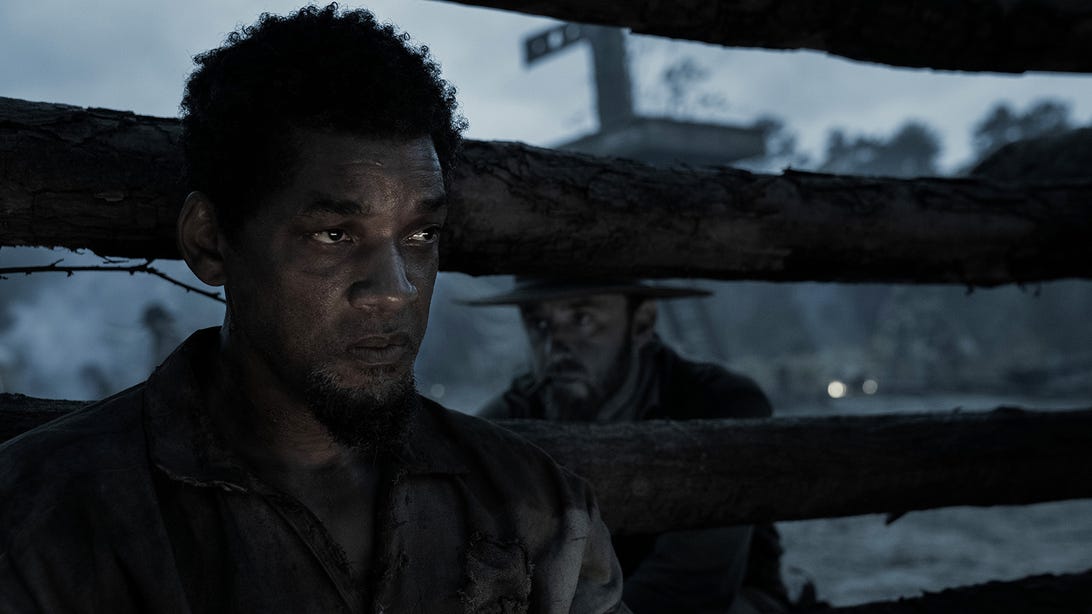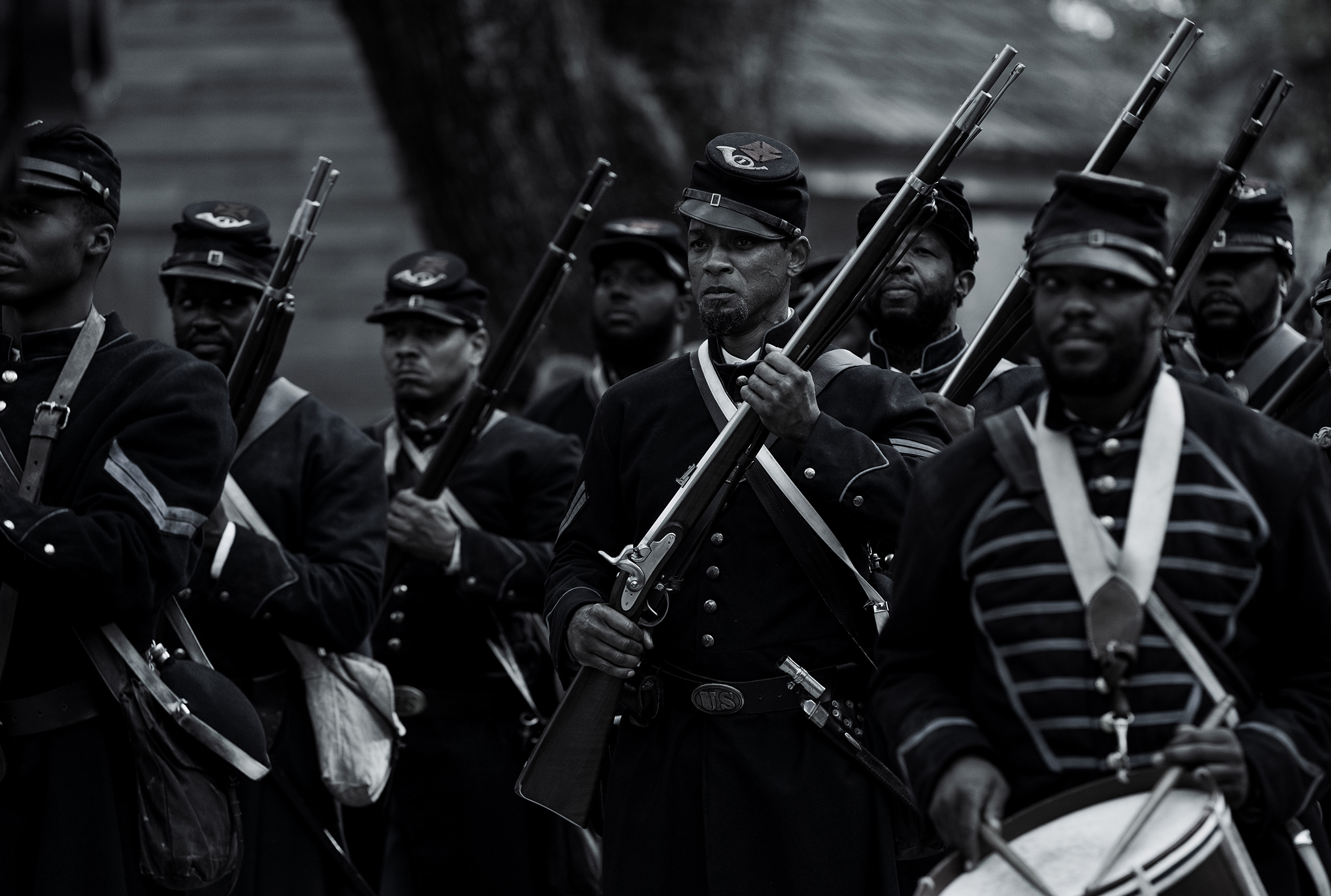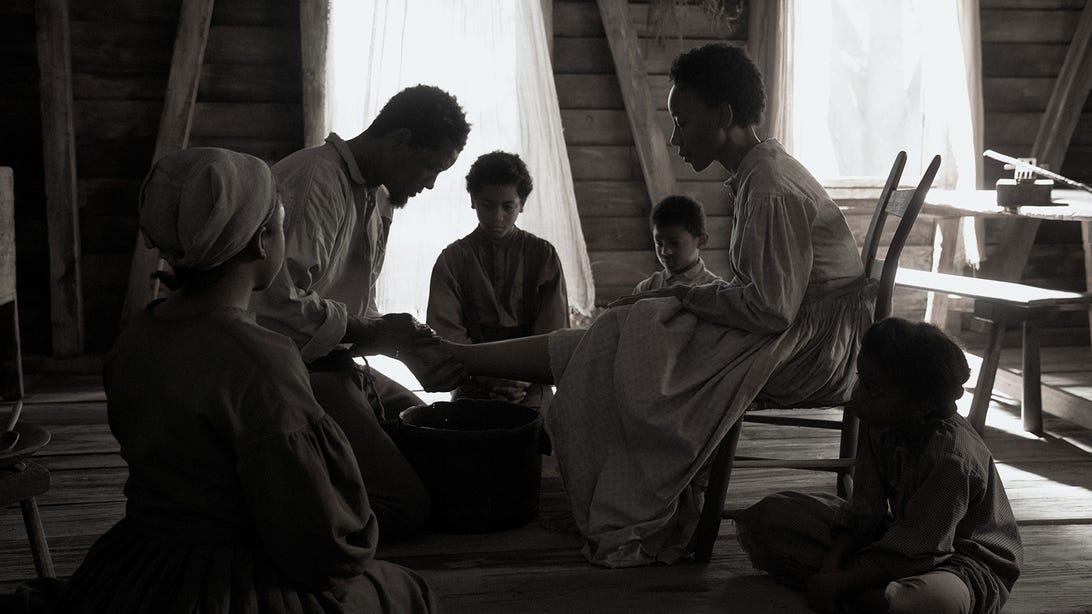Emancipation Review: Will Smith Drama Is a Brutal but Gripping Look at the Horrors of Slavery
Antoine Fuqua’s survival movie takes some unexpected turns

As the lights dimmed in the extremely small screening room on the 28th floor of a building in midtown Manhattan, my mind was racing. Apple Original Films was holding a string of close-to-the-last-minute midday showings of Emancipation, a movie that, when it was first announced, seemed like something that would warrant a huge release and much fanfare. (There was, indeed, a bidding war for the rights.)
But there’s been a cautious rollout of this film, with only a handful of highly curated “tastemaker” events before any critics or journalists could take a look. It’s understandable, as this movie comes with industry baggage, being the first title out since its producer and star, Will Smith, breached decorum at the Academy Awards and smacked Chris Rock across the face.
Why am I bringing this up? Because it took about a minute and a half until all that marketing distraction vaporized. I was immediately drawn into Antoine Fuqua‘s survival-horror picture, based somewhat loosely on the escape from slavery of a real man known as “Whipped Peter.”
We open with black and white digital images of the Louisiana swamp, then an intimate scene between Smith’s Peter (speaking with a Haitian accent) and his wife (Charmaine Bingwa) and children. Something bad is about to go down, but we don’t know what. White men burst into their shack, and we see we’re on a plantation, and Peter has just been acquired by the Confederate Army as taxation. Peter promises his weeping family he will one day return, but the cart carrying him and other enslaved people soon enters a hell on earth.
Heads on spikes greet them in the steamy swamp; there are shrieks of agony and the sound of whipped men. This is the cruelest, most nightmarish last stop before death. Workers are expected to help build a railroad until their bodies give out under them and they are replaced by new terrified souls. Fuqua shoots this sequence with a gripping sense of dread, similar to the entry to Bexhill in Alfonso Cuarón’s Children of Men. The difference, of course, is that Cuarón’s movie was science fiction, while the horrors of slavery are part of American history.

The chief enforcer of the camp is Jim Fassel, played with an eerie cruelty by Ben Foster. It sounds weird to say this, but he’s terrific as the sadistic, hateful tracker of runaway slaves. Fassel and Peter soon clock one another; they know something will happen that will set them on a path.
Indeed, word leaks about the Emancipation Proclamation. Lincoln has declared all enslaved people to be free, but a lot of good this does for them right now. Still, Peter wonders if he can make his way to the Union Army somehow — especially with a garrison supposedly in Baton Rouge, not too far from them. An opportunity presents itself to break free, and Peter and four comrades take it (not before Will Smith commits some badassery to a bastard guard’s face with a shovel). Emancipation then springs into action mode.
And this is, undeniably, when the movie experiences a vibe shift. Up until this point, though brutal, there’s been a sense that the enduring physical and psychological suffering carries noble artistic purpose: to bear witness to the most wretched element of this country’s past. But once Peter is on the run, it’s basically an exploitation picture. Will Smith fights an alligator, for heaven’s sake.
This is not say Fuqua hasn’t constructed a worthwhile survival film, but there is a noticeable drop in oomph. Still, some shots along the water, and a dreamlike sequence at a burning plantation, are extraordinary. The final act takes a hard, unexpected turn, reminding me a little of Stanley Kubrick’s Barry Lyndon (though just in its narrative, not at all in its point of view).
Along the way there are check-ins with Peter’s family that, unfortunately, feel like studio notes that read “remind audiences of the stakes.” A late-in-the-game supporting character played by Mustafa Shakir jumps out and grabs you, but other folks Peter meets along the way don’t distinguish themselves too much. There’s just Will Smith, a determined force of survival, and Ben Foster, a laser-focused villain.

Fuqua shoots most of the movie in black and white, with occasional splashes of richer hues — like an orange burst when a canon fires. However, sometimes shots appear with a more traditional coloring. I suspect that to shoot this movie in a more typical manner would simply have been too violent for most audiences to bear. The last section, particularly, is just wall-to-wall bloodshed. But the occasional return to “normal” color use didn’t seem to follow any logic, and this distraction did yank me out of the movie from time to time. I simply don’t understand the decision not to just shoot in black and white.
Overall, though, Emancipation is certainly an engaging movie. There is an ongoing conversation among many Black critics about the value of movies and television shows that focus on Black pain. This film does not hold back in that respect, which Fuqua himself has addressed. I don’t doubt the response will be strong, but a scene toward the end almost seems to anticipate this conversation. Shakir’s character gives a rousing speech about why it is important to do the thing you don’t want to do, why it is important to fight. Whether watching an uncomfortable movie fits that bill is open to debate, but it is undeniable that this is effective filmmaking. Even with a long section that’s just Will Smith battling the elements, this is a movie that “comes correct” and has earned the right to be taken seriously, and in good faith. To shrug it off completely is to do it a bit of an injustice.
Premieres: Friday, Dec. 9 on Apple TV+, and in select theaters on Dec. 2
Who’s in it: Will Smith, Ben Foster, Charmaine Bingwa, Steven Ogg, Mustafa Shakir, Timothy Hutton
Who’s behind it: Antoine Fuqua (director), William N. Collage (writer)
For fans of: Brutal looks at the reality of American history
